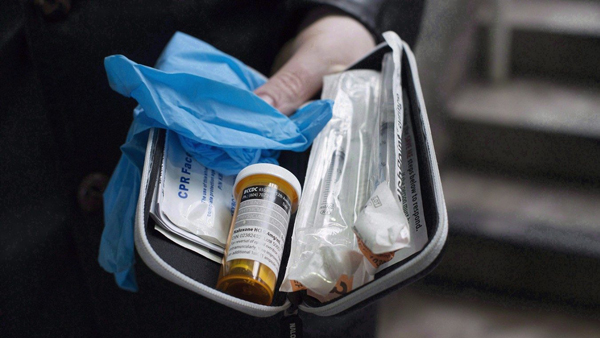In September 2017, Montreal Public Health declared the increasing presence of fentanyl in recreational drugs a public health emergency. Since the beginning of 2017, 10 drug overdoses linked to fentanyl—two of which were fatal—have occurred in Montreal. To counter the fentanyl crisis, McGill Student Health Services (SHS) held Naloxone administration training between Oct. 24 and 27 for all floor fellows at first-year student residences.
A cheap-yet-powerful opioid, fentanyl can be laced into most drugs, and, if ingested, can lead to a lethal overdose. Naloxone is a reversal agent that effectively slows the ingestion of fentanyl for 30 to 60 minutes, allowing time to administer other emergency treatments. Dr. Hashana Perera, director of SHS, has been working with McGill Clinic nurses since September to provide access to naloxone on campus.
“Around mid-September, the Quebec government introduced a new plan that opened administration of naloxone to third parties who are not health practitioners,” Perera said. “We quickly worked to come up with a plan to provide naloxone to the various McGill parties. Besides the floor fellows, we also provide training for the Residence Life Managers, McGill Security, and [the McGill Student Emergency Response Team] MSERT.”
Currently, naloxone can be administered as both an intramuscular injection and an intranasal spray, the latter of which McGill provides. The floor fellow training sessions, led by McGill Clinic nurses, lasted 45 minutes, and consisted of a basic introduction to fentanyl, naloxone, and the emergency procedures for the management of fentanyl poisoning. New Residence floor fellow Aden Feustel, U3 Science, is now equipped with the knowledge to save students in emergencies following the training.
“I think the biggest thing is recognizing an opioid overdose,” Feustel said. “We were told it’s usually the shallow, slow breathing that’ll give it away.”
Residences will now possess two naloxone kits, each containing one single-use naloxone intranasal spray. In an interview, New Residence floor fellow Corinne Bulger, U2 Arts, highlighted the safety of naloxone intranasal sprays.
“Once the first dose of naloxone is given, a second dose could be administered if emergency services do not arrive in time,” Bulger said. “A good thing about naloxone is that it does not cause any harm to the body, so there is no risk related to using it, even if you use up both kits.”
There have been no reported incidents of drug overdose related to fentanyl at any McGill residence. Although floor fellows say the likelihood of such incidents is unknown, they agree that Naloxone training is necessary for prevention in the future.
“There is never enough training,” Bulger said. ‘Even if there is only one case, or no case at all, the possibility of any outliers makes the trainings totally worth it.”
SHS is also working on information campaigns on fentanyl education for students, which will be carried out across campus by Healthy McGill in the upcoming weeks.








